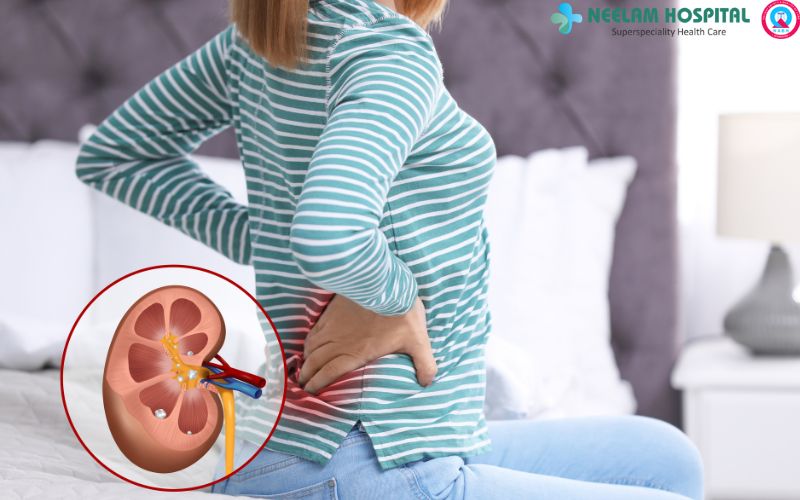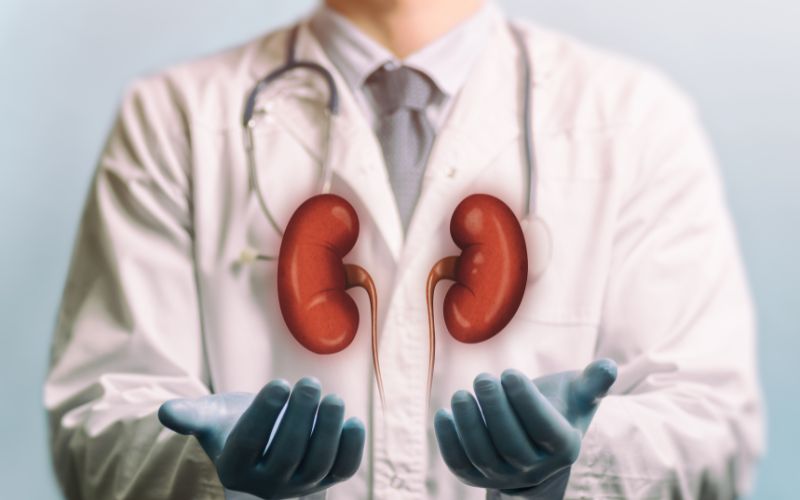
Home – Punjab’s Best Stone Disease Treatment: Advanced Care at Neelam Hospital

Welcome to Neelam Hospital, a leading multispecialty hospital in Punjab, renowned for providing the best stone disease treatment. Our state-of-the-art facilities, advanced medical technologies, and experienced specialists make us the top choice for patients seeking effective solutions for kidney stones. In this comprehensive guide, we will explore the various aspects of kidney stone treatment, emphasizing our commitment to quality care and patient well-being.

Kidney stones are hard deposits of minerals and salts that form in the kidneys. They can cause severe pain and complications if not treated promptly. The types of kidney stones include:
Recognizing the symptoms of kidney stones is crucial for timely treatment. Common symptoms include:
Understanding the causes and risk factors of kidney stones can help in prevention and management. Common causes include:
At Neelam Hospital, we use advanced diagnostic techniques to accurately identify kidney stones. These include:
Neelam Hospital offers a range of treatments tailored to the type, size, and location of the kidney stones:

For small stones, medications can help:
ESWL is a non-invasive procedure that uses shock waves to break stones into smaller pieces, making them easier to pass through the urine.
A ureteroscope is used to locate and remove stones in the ureter or kidney. This procedure may involve breaking the stones with laser energy.
PCNL is a minimally invasive surgery for removing large or complex stones directly from the kidney through a small incision in the back.

In cases where other treatments are ineffective, surgical removal of kidney stones is performed. This involves a more invasive approach to extract the stones.
Neelam Hospital is proud to offer specialized kidney stone treatment in Patiala. Our team of experts is dedicated to providing personalized care, ensuring the best outcomes for our patients. Whether you require non-invasive procedures or surgical interventions, we have the expertise and facilities to meet your needs.
Preventing the recurrence of kidney stones is a key aspect of our treatment approach. Our preventive strategies include:
Our specialists at Neelam Hospital emphasize the importance of lifestyle changes and medical management to prevent kidney stones. Here are some expert tips:
Regular Check-ups: Schedule regular check-ups to monitor kidney health.
Experienced Specialists: Our team of urologists and nephrologists have extensive experience in treating kidney stones, ensuring the highest standards of care.
Advanced Technology: We utilize the latest medical technologies and equipment to diagnose and treat kidney stones effectively.
Comprehensive Care: From diagnosis to treatment and prevention, we offer comprehensive care tailored to each patient’s needs.
Patient-Centered Approach: At Neelam Hospital, patient well-being is our top priority. We provide compassionate care and support throughout the treatment journey.
Booking an appointment at Neelam Hospital is easy and convenient. Our dedicated staff is here to assist you with scheduling and answer any questions you may have. Whether you need a consultation, diagnostic tests, or treatment for kidney stones, we are here to help. To book an appointment, visit our website at neelamhospital.com or call us at (insert contact number). We look forward to providing you with the highest quality care.
The most common cause of Kidney stones are dehydration, high intake of salt and protein, certain medical conditions, and a family history of stones.
Preventive measures include staying hydrated, maintaining a balanced diet low in oxalates and sodium, and regular check-ups with your healthcare provider.
Common symptoms include severe pain in the back or side, pain during urination, blood in the urine, frequent urge to urinate, nausea, and vomiting.
Treatment options at Neelam Hospital include medication, ESWL, ureteroscopy, PCNL, and kidney stone surgery, depending on the size and location of the stones.
Neelam Hospital offers experienced specialists, advanced technology, comprehensive care, and a patient-centered approach, ensuring the best possible outcomes for kidney stone treatment.

